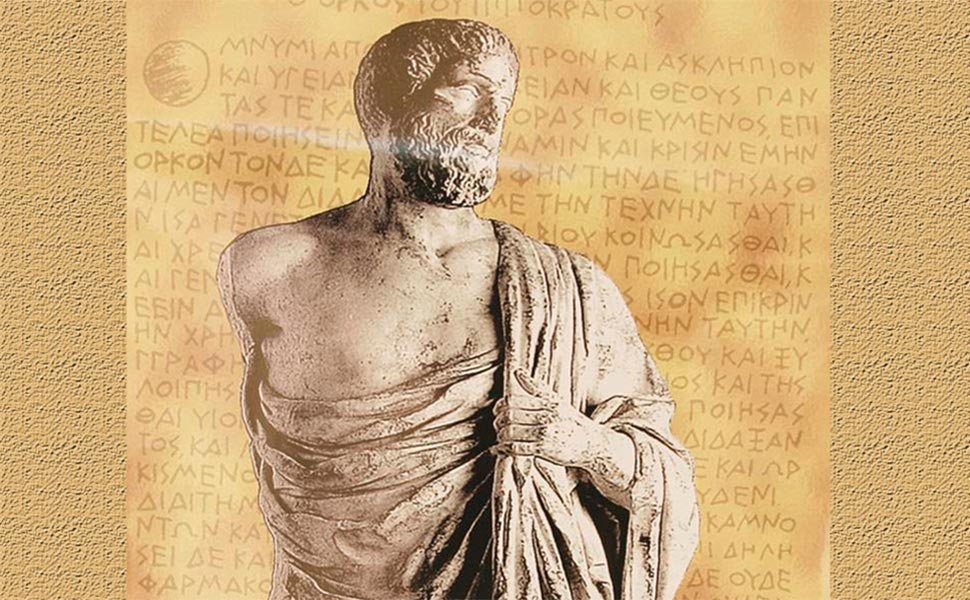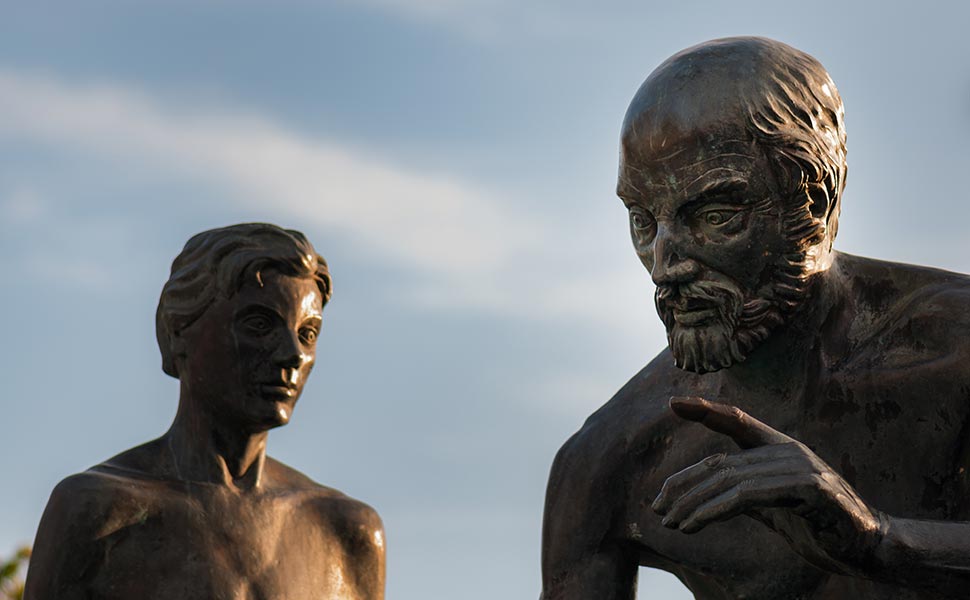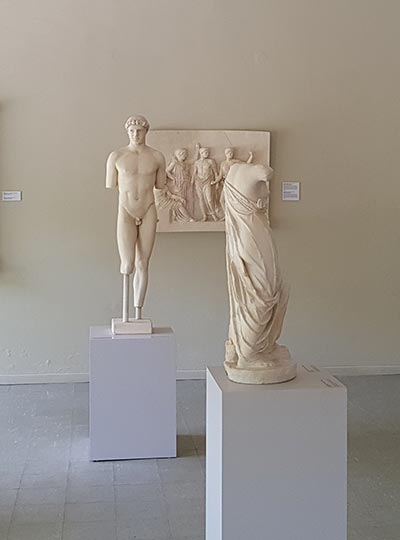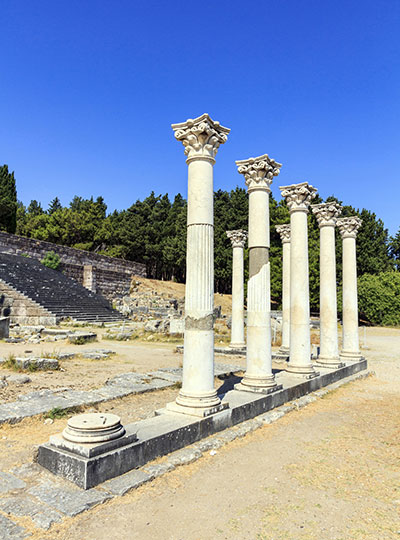Hippocrates of Kos
Hippocrates the father of Medicine.
The great Greek doctor Hippocrates was born on the island of Kos in 460 BC (d. Larissa, 377 BC). He was the founder of scientific medicine, thus rightly earning him the name of “father of modern medicine” and a staunch proponent of “rational” medicine, i.e. one free of biases and superstitions.
There are in fact two things, science, and opinion; the former begets knowledge, the latter ignorance.
According to the most reliable version of his biography in existence, Hippocrates was a student of his own father, who was a doctor as well and who trained him in medicine.
He traveled throughout the known world in an effort to expand his knowledge, while simultaneously treating patients and teaching.It was during these travels that he recorded data and observations and gathered the material for what would later come to be known as the Hippocratic Collection, the most famous part of which is the renowned Hippocratic Oath.
The pioneering, brilliant spirit of Hippocrates led him to the conclusion that man is a psychosomatic being, and that illness is governed by the laws of nature. In accordance with this theory, doctors must assist nature in alleviating pain and in confronting the illness.
Hippocrates’s contribution to both modern medicine as well as to the people of his time is immeasurable: he propagated his firm belief that diseases were not sent by the Gods but rather came from more mundane things such as polluted water, dirt and rats, and that the sick must not come into contact with healthy people until they had fully recovered.
In modern times, this “philosophical” approach to the medical practice has proven truly invaluable.












